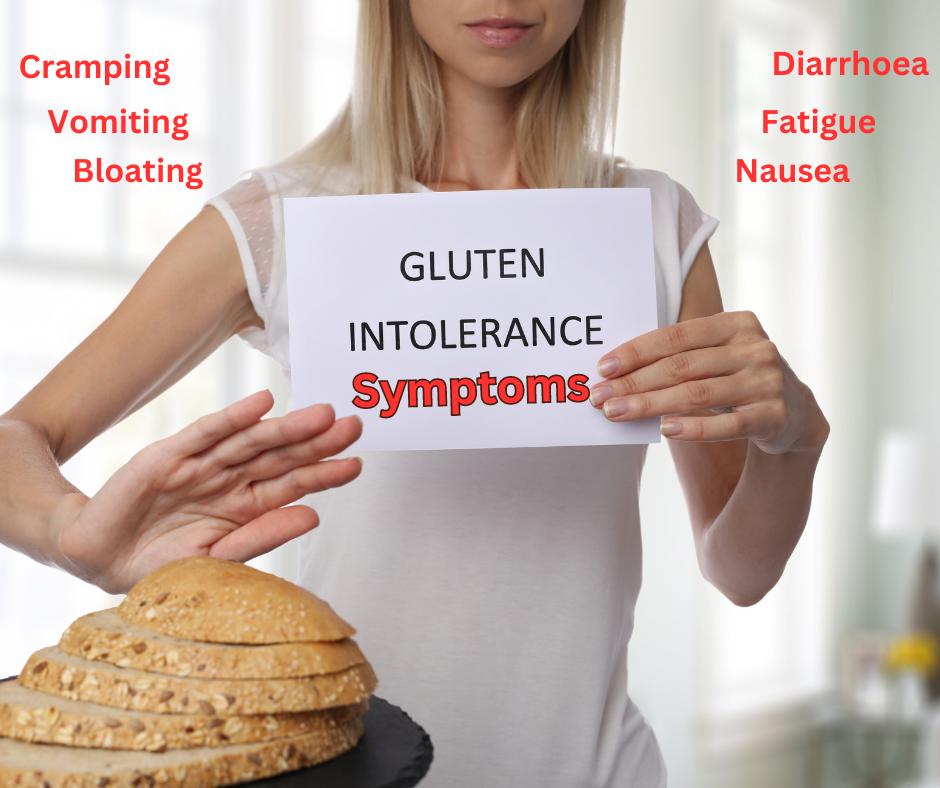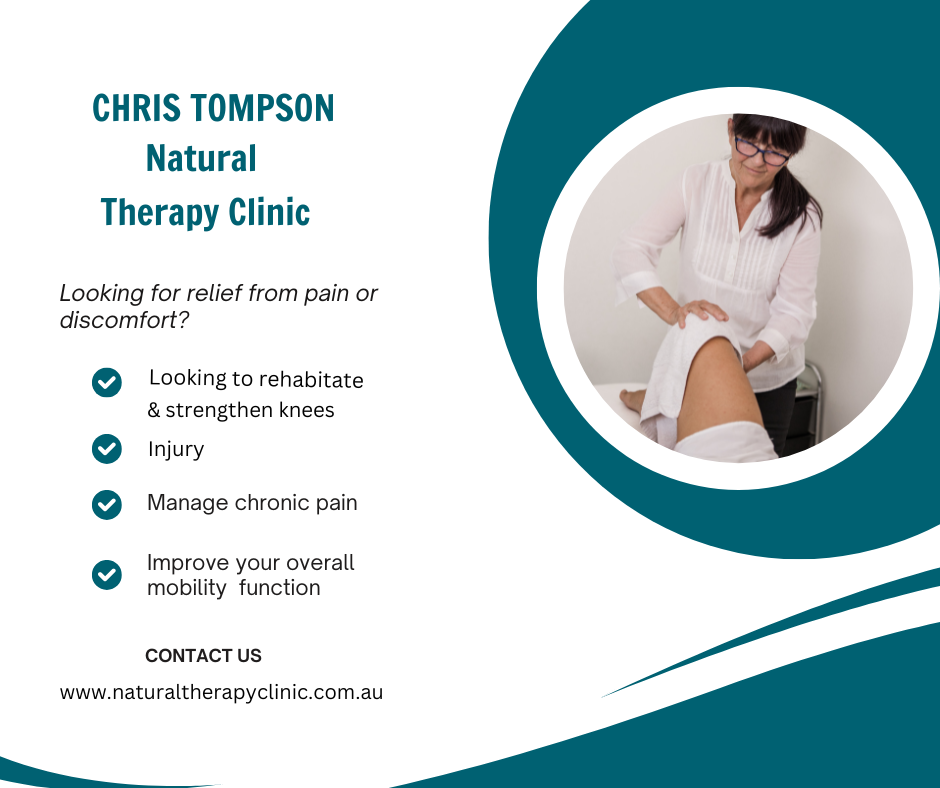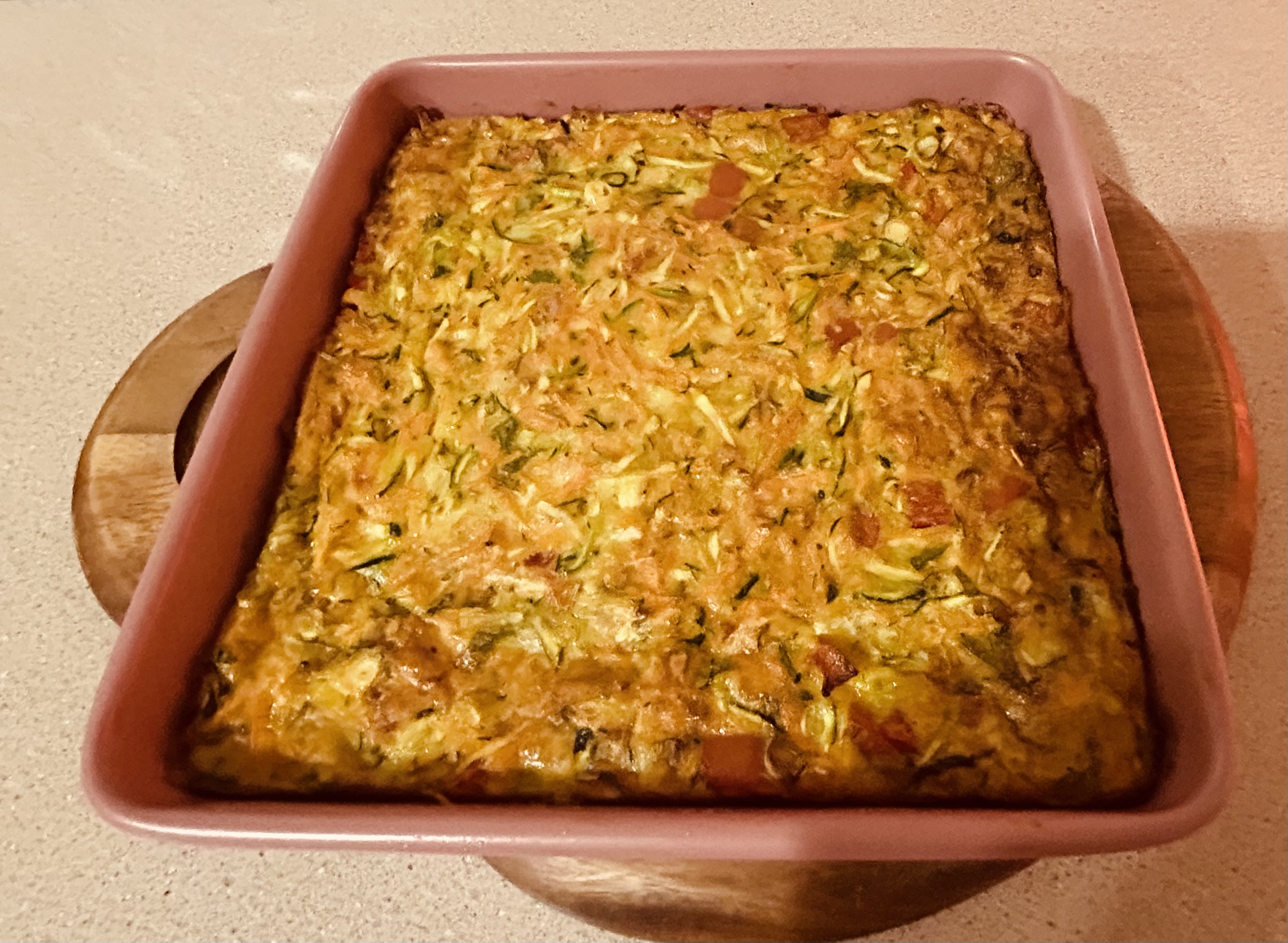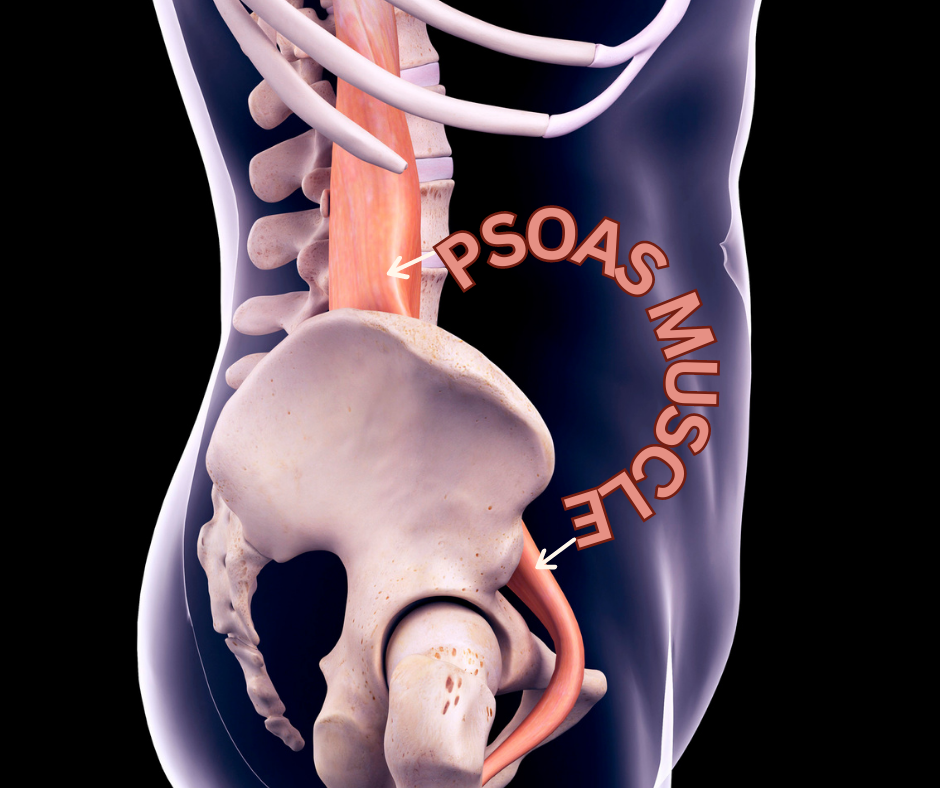Gluten is a protein found in wheat, barley & rye. It gives bread its spongy texture when cooked and helps dough to rise. Gluten intolerance has become increasingly common over the last few years, with many people discovering they have difficulty digesting it or have an adverse reaction to it.
Gluten intolerance symptoms:
- Abdominal cramping
- Bloating
- Diarrhoea
- Nausea
- Vomiting
- Diarrhoea
- Flatulence & burping
- Fatigue
- Joint pain
- Headaches
- Brain fog
- Skin rash
- Depression
- Unexpected weight loss
- Loose, greasy, bulky & bad-smelling stools
It’s important to remember that these symptoms can be indicative of coeliac disease if you experience them regularly. Coeliac disease is an autoimmune disorder that is triggered by the ingestion of gluten & causes damage to the small intestine. This damage interferes with the absorption of nutrients from food, leading to a range of issues if left untreated.
Health issues such as:
- Anaemia,
- Osteoporosis
- Other nutritional deficiencies
- Lactose intolerance due to damage to the small intestine
- Malnutrition. This occurs if your small intestine can’t absorb enough nutrients
- Nervous system problems
Gluten intolerance can also lead to an inflammatory response in the body which can further hinder digestion & absorption of nutrients. If you are suffering from symptoms associated with gluten intolerance it is important to get tested for coeliac disease so that you can receive the correct diagnosis. If you do have coeliac disease or are gluten intolerant, it is important to follow a gluten-free diet to reduce the damage to your small intestine & prevent any further health issues related to malabsorption of nutrients.
Gluten Sensitivity & foods to avoid:
- Wheat, wheat bran & wheat germ
- Wheat variates such as spelt, durum, couscous, semolina, farina, farro, kamut, wheat berries, wheat starch
- Triticale
- Rye
- Barley
- Thickening agents
- Baked goods
- Pasta
- crackers
- Beer, ale, porter, stout
- Soup (canned & boxed)
- Soy sauce
- Bulgur wheat
- Vegetarian meat substitutes
- Malts such as malt extract, syrup, flavouring
- Vinegar unless it is pure distilled vinegar which is gluten-free
- Brewer’s yeast
- Stuffing
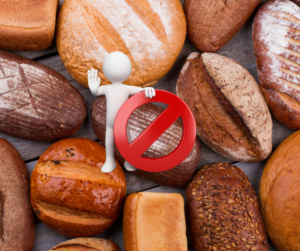
Foods that may contain gluten:
- French fries
- Gravy & sauces
- Salad dressing
- Processed meat
- Snacks & bars
- Potato chips & tortilla chips
It is important to note that gluten-free does not necessarily mean healthy. Many processed foods labelled as ‘gluten-free’ are still high in sugar and other unhealthy ingredients, so it is important to read labels carefully.
Gluten-free Foods:
- Brown rice
- Quinoa
- Buckwheat
- Amaranth
- Arrowroot
- Beans
- Cassava
- Chia
- Corn
- Flax
- Gluten free oats
- Millet
- Sorghum
- Tapioca
- Teff – Teff is a fine grain—about the size of a poppy seed—that comes in a variety of colors, from white and red to dark brown. It is an ancient grain from Ethiopia and Eritrea & comprises the staple grain of their cuisines. Ground into flour, teff is used to make the traditional bread
- Cassava – Can be eaten whole, grated or ground into flour to be used in bread or crackers. Cassava root is also used to produce tapioca, a type of starch, as well as garri, a product similar to tapioca.
- Gluten free bread, cereals & pasta
- Fruits
- Vegetables
- Meat & poultry
- Fish & seafood
- Beans, legumes, nuts & seeds
- https://www.nutritionalhealthenterprises.com/healthy-eating-guide-grains/
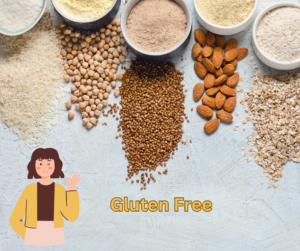
Gluten intolerance is a growing concern, with more and more people being diagnosed each year. It is important to be aware of the symptoms associated with gluten intolerance so that you can get tested if necessary & change your diet accordingly. Following a gluten-free diet can help to reduce the damage caused to your small intestine and improve overall health. If followed correctly, a gluten-free diet can be both nutritionally sound & delicious!
However, as always it is important to speak to your healthcare worker before making any dietary changes. They will be able to provide further advice & guidance on how best to manage a gluten intolerance as well as refer you for further testing if necessary.
Most people can consume gluten without any problems, but for others, it can cause a range of symptoms & health issues. While most people associate gluten intolerance with celiac disease, it is important to note that there are other types of gluten intolerances & sensitivities. https://www.betterhealth.vic.gov.au/health/conditionsandtreatments/coeliac-disease-and-gluten-sensitivity#
In people with celiac disease, gluten can cause damage to the lining of the small intestine, which can lead to nutrient deficiencies and other health issues.https://www.healthline.com/nutrition/signs-you-are-gluten-intolerant
Research suggests why people are gluten intolerant in the first place:
- Genetics
- Environmental factors may play a role.
- People with a family history of celiac disease
- Autoimmune conditions.
- Stress
- Infections
- Changes in gut bacteria may trigger the onset of gluten intolerance
- Changes in the way foods are processed & produced
- Processed & fast-food meals which leads to increased exposure to gluten & potentially sensitivity to gluten.
Summary:
In my practise I see a lot of clients presenting with gluten issues, ranging from intolerance, sensitivity to celiac disease.
With health problems ranging from digestive disorders to auto-immune conditions, this is why I feel it is important to have a clear understanding of what is involved with somebody who is suffering from the above problems & how best to rectify the issue.
Keep in mind that there still is not enough research into the causes of gluten intolerance & celiac disease.
Disclaimer:
All content & media on the Natural Therapy Clinic is created & published online for informational purposes only.

